
Number 179
Average White Goddess
Jun-Gal is from Blazing Comics #1, 1944. Blazing Comics is probably known for its cover feature, The Green Turtle, one of the few Golden Age comic book heroes--maybe the only one?--created and drawn by a Chinese-American, Chu Hing.
Jun-Gal is notable for at least a few reasons: The horrible pun name. The artwork, which is more suitable to the 1920s than the 1940s, and the racial attitudes, which permeate the story.
Jun-Gal's "real" name (in the story, anyway) is Joan Teal. Teal is Mrs. Pappy's maiden name, so that made me sit up and take notice.
As drawn, Joan is a beautiful blonde girl in a sarong. They were going for the Dorothy Lamour look, which was hugely popular during World War II. While Sheena and others went around in animal skins, Jun-Gal wore her sarong. Jun-Gal is given powers of strength from the "Pit Of Death," an ever-burning hole full of radium. Apparently it doesn't affect the black people the same way. Because she's blonde, she becomes the queen, the goddess figure to the superstitious and uneducated natives. Maybe African-Americans of the era viewed this sort of thing with trepidation, but to white America it was pretty much business as usual with attitudes toward "coloreds." Tarzan movies were made up of this sort of stereotyping. The natives are cruel, stupid, superstitious and treacherous. The whites, just by virtue of their race, are made to be masters over the blacks.
What's most interesting to me is the racial viewpoint. This is standard fare for the era. The characters are stock. The blacks are "natives;" not Africans, just "natives." They have bulging lips drawn in a minstrel style. The white people are set upon and the parents killed by the "bad natives." Joan is raised by her "mammy," in the midst of the village of her parents' killers.
I'm presenting this as it was, over 60 years ago. The irony isn't lost on us that when this was published we were fighting an enemy whose philosophy of superiority was repugnant to us. But it was repugnance in words, not deeds. Over in morally superior America we felt it was OK to discriminate based on race, all the while excoriating our enemies for doing the same.
OK, that was then, this is now. I've climbed down from my soapbox. Blazing Comics was short-lived, only five issues, and I own only the first issue. I can't tell you if Jun-Gal lasted for the entire run. The Comic Book Price Guide doesn't help, and the Grand Comics Database doesn't even list Blazing Comics. I don't know what happened to Jun-Gal after her origin story, and I don't know who wrote or drew her adventure(s). That's really a lot I don't know about Jun-Gal, isn't it?
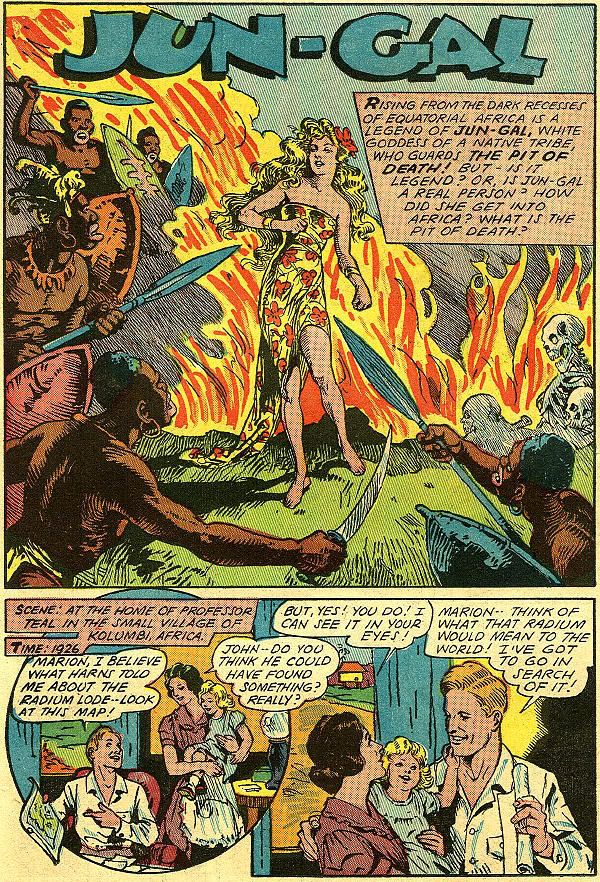
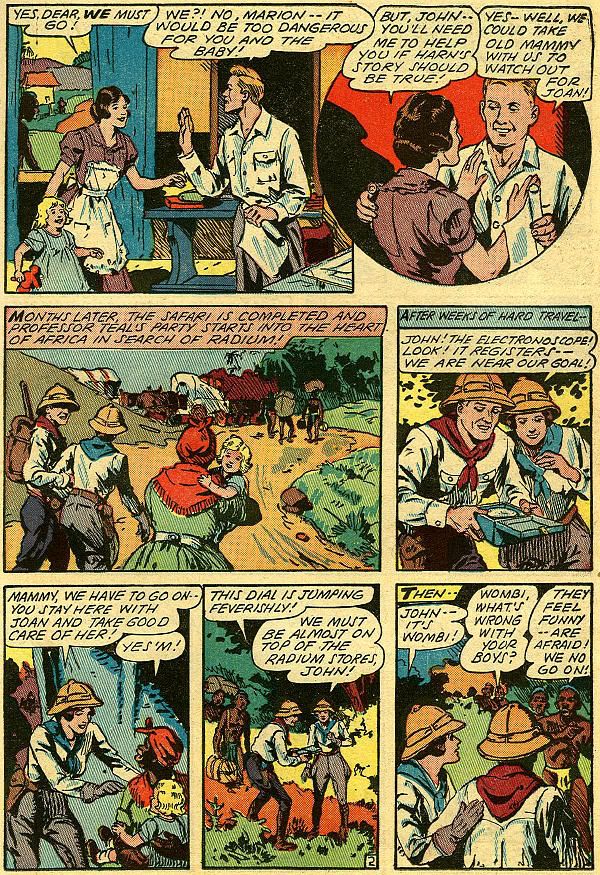
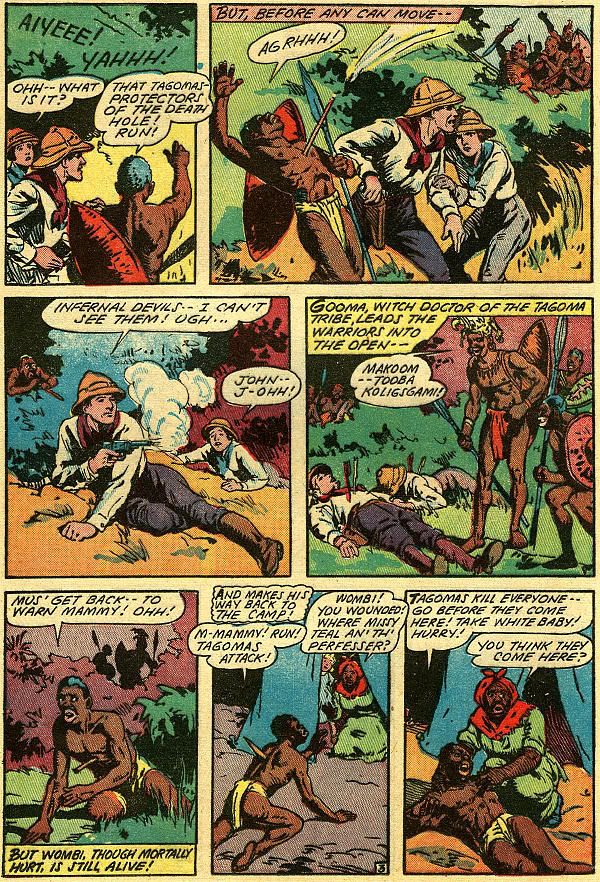
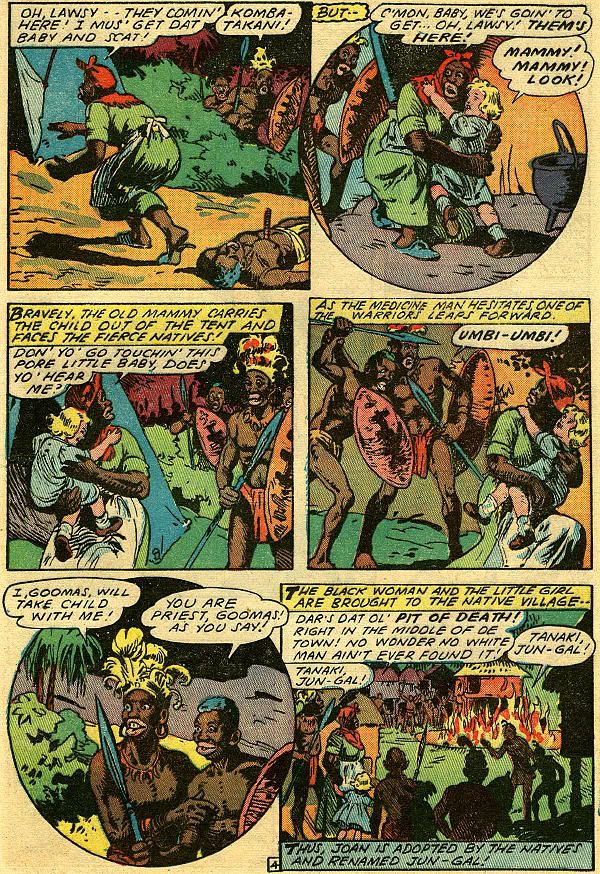
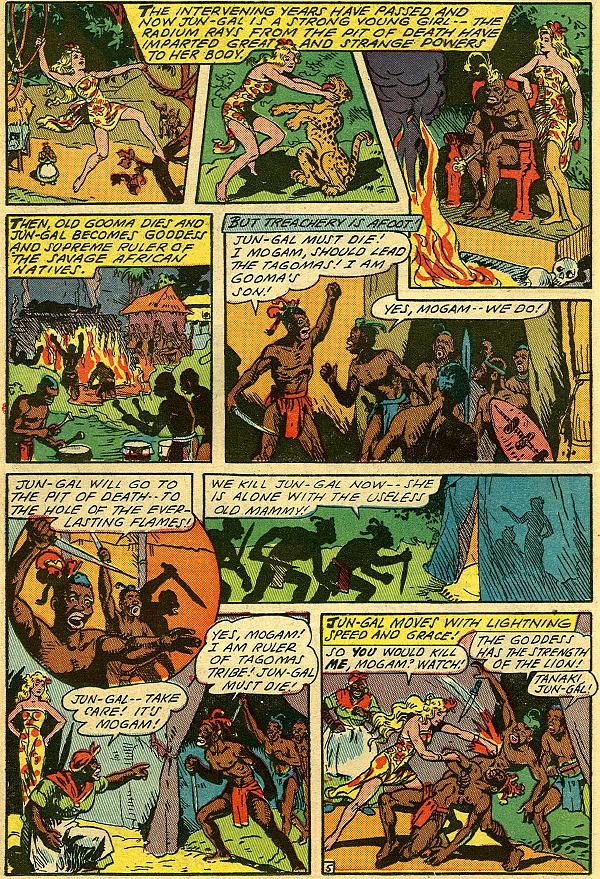

0 nhận xét:
Đăng nhận xét